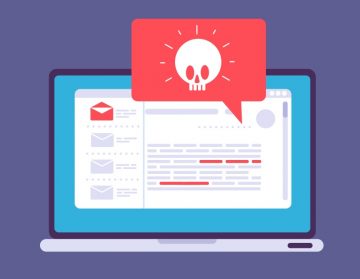'Email Deactivation In Progress' Email Scam

Our investigation of the email titled "Email Deactivation In Progress" has confirmed that it is indeed spam and a misleading message. This fraudulent email falsely asserts that a request to deactivate the recipient's account has been initiated. The phishing email provides an option to cancel this deactivation process. However, attempting to do so will expose the recipient's account login credentials to the malicious actors behind this spam campaign.
The scam email, which may have the subject "Deactivation Request In Progress" (subject line can vary), claims that the account deactivation is currently underway. It specifies the date on which the non-existent request for email deletion was purportedly made. If this was done in error or by someone other than the legitimate account owner, the spam email suggests that the deactivation process can be reversed.
It is essential to emphasize that all these assertions are entirely false. Therefore, the recipient's account will not be deleted, and their email data will not be permanently lost. Additionally, it's important to note that this spam email has no association with any legitimate service providers.
When we clicked on the "CANCEL DEACTIVATION REQUEST" button provided in this spam email, it led to a redirection to a phishing website. This fake website mimics the recipient's email account login page. Despite its potentially convincing appearance, this webpage is counterfeit and captures the information entered, including email account passwords.
The risk posed by this scam goes beyond the potential loss of an email account, as cybercriminals could also gain access to other accounts and platforms linked to it. To illustrate, scammers may hijack social accounts (e.g., email, social networking, messaging apps) and use them to request loans or donations from contacts, promote scams, and distribute malware by sharing malicious files or links.
Moreover, compromised financial accounts (e.g., online banking, money transfer services, e-commerce, cryptocurrency wallets, etc.) can be exploited for unauthorized transactions and online purchases. Furthermore, if any confidential or compromising content is found on data storage or similar platforms, it could be used for blackmail or other malicious purposes.
In summary, trusting an email like "Email Deactivation In Progress" can lead to severe privacy breaches, financial losses, and even identity theft for users.
How Can You Recognize a Phishilg Email?
Recognizing a phishing email is crucial for your online security. Phishing emails are designed to trick you into revealing sensitive information, clicking on malicious links, or downloading harmful attachments. Here are some common signs and tips to help you recognize a phishing email:
Check the Sender's Email Address:
Carefully examine the sender's email address. Look for misspelled domain names or suspicious email addresses that don't match the legitimate organization.
Look for Generic Greetings:
Phishing emails often use generic greetings like "Dear Customer" instead of addressing you by name. Legitimate organizations usually use your name.
Beware of Urgent Language:
Phishing emails often create a sense of urgency, using phrases like "Immediate action required" or "Your account will be suspended." Scammers want you to act without thinking.
Check for Spelling and Grammar Errors:
Many phishing emails contain spelling and grammatical mistakes. Be wary of poorly written messages.
Verify Links Before Clicking:
Hover your mouse pointer over links in the email (but don't click). Check the URL in the status bar to see where the link actually leads. Ensure it matches the official website of the organization.
Beware of Unsolicited Attachments:
Don't open attachments or download files from unsolicited emails. Even if the sender claims it's important, it could be malware.








